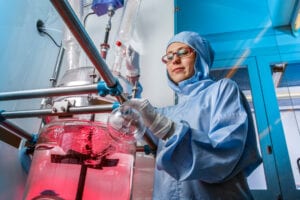Optitune Oy (Oulu, Finland) has developed an ultra-flexible hard coating material with best-in-class optics and durability based on its proprietary siloxane-based technology. Recently, more and more top brands are introducing foldable phones based on large foldable organic light-emitting-diode (OLED) displays. Such displays employ thin flexible substrates which require coatings to protect against fingerprints, scratches and reflections. Revenues of these free-form displays are expected to reach $8.9 billion by 2025, which is 13 times the revenue generated by this segment today.
Merck KGaA (Darmstadt, Germany), an established leader in display materials, will use its brand and customer network to bring Optitune’s product to the market. Merck has played an integral role in the development of display technologies for more than 50 years in the commercialization of liquid crystal display (LCD) and now OLED materials.
“Merck, with their long-standing reputation in display materials and global reach is the ideal partner for Optitune and is a testament to the quality of the materials we’re producing here in Oulu,” comments Optitune CEO Ari Kärkkäinen.
Optitune has developed a range of siloxane-based coating products which are designed to improve the optical performance of displays while lowering power consumption. The extremely robust coatings render surfaces easy-to-clean and difficult to scratch. Optitune’s coatings portfolio covers applications ranging from electronic displays and touch panels to common kitchen appliances.
“This is a classic case of product finds market. What better application than foldable OLED phones to showcase Optitune’s ultra-flexible anti-abrasive hard coat solution. Flexible phones are quite expensive. Ensuring their durability while reducing reflections and increasing battery lifetime is a huge benefit for consumers,” comments Optitune SVP and executive board member Neil Pschirer.
